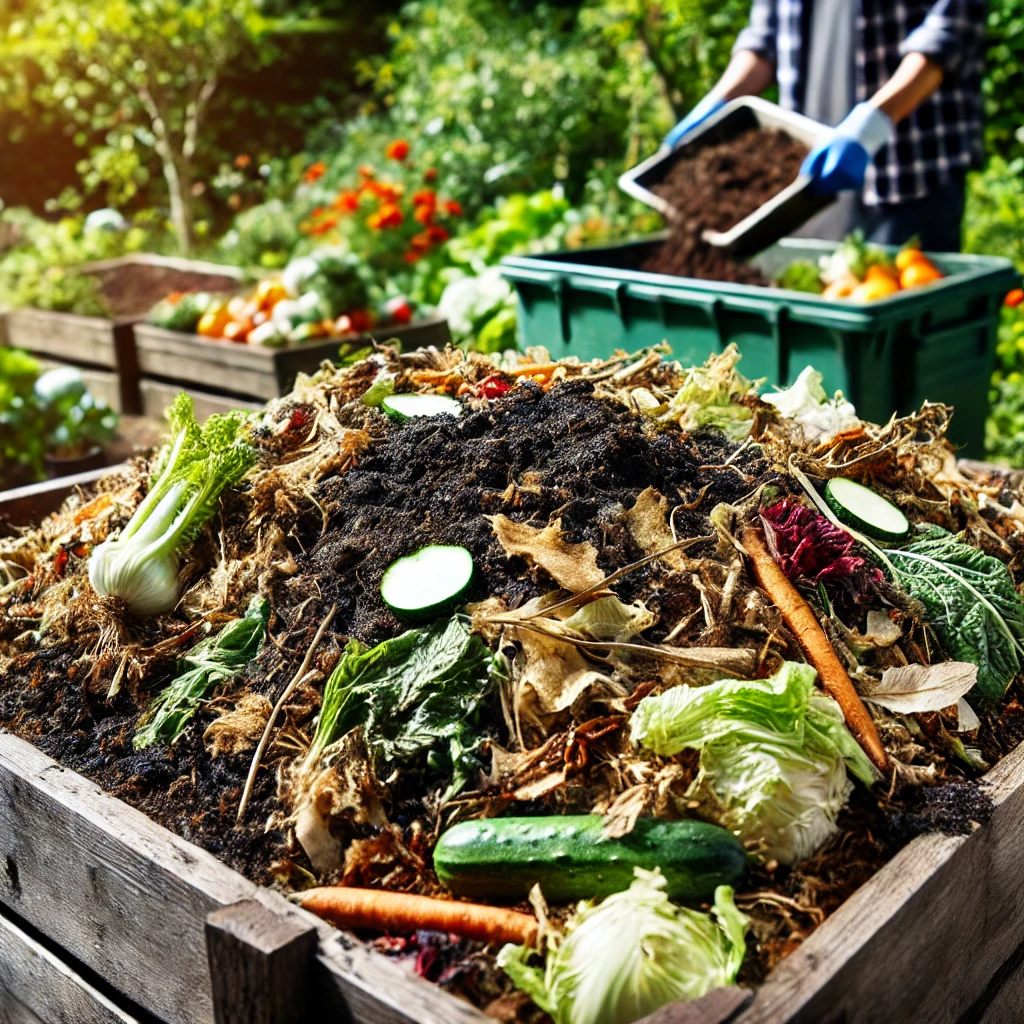Understanding the Basics of Composting
Organic waste is converted into compost—a nutrient-rich soil—by the natural process of composting. Finding the ideal ratio between green (vegetable scraps, grass clippings, and fruit peels) and brown (dried leaves, cardboard, and twigs) materials is essential to a successful composting process. Brown materials contribute carbon, which gives the compost pile a stable structure, and green materials supply nitrogen, which is necessary for microbial activity. Composting breaks down organic matter over time by properly layering these materials and keeping them moist. The result is a crumbly, dark compost that improves the soil in your garden.
Creating the Perfect Compost Pile
The proper proportion of organic materials, moisture, and airflow are necessary for an ideal compost pile. To encourage airflow, start by adding a layer of coarse materials, such as tiny branches, at the bottom. Next, switch between the green and brown layers to make sure that the materials rich in carbon and nitrogen are well-balanced. Cut bigger objects into smaller pieces to hasten the decomposition process. Don’t let the compost get too wet; instead, keep it damp, like a sponge. Every few weeks, turn the pile to add oxygen, which aids in the materials’ breakdown by microbes. Several months to a year may pass during this process, depending on the circumstances.
Troubleshooting Common Composting Problems
Composting is a straightforward process, but there are a few potential problems, like bad smells or sluggish decomposition. Your compost pile is probably overly wet or overly composed of green materials if it has an unpleasant odor. To maintain a balance between the levels of carbon and moisture, add more brown materials, like leaves or straw. However, if your compost isn’t decomposing, it can be too dry or lacking in nitrogen. If so, give the pile a little watering and add more green materials, such as grass clippings. Your compost will break down efficiently if the proper conditions are kept in place, giving your garden a consistent supply of rich soil.
Using Finished Compost in Your Garden
Your compost will become crumbly, dark soil with an earthy scent after it has completely broken down. You can enhance your garden in a number of ways with this nutrient-rich compost. Incorporate it into your garden beds to add organic matter to the soil, which will improve moisture retention and encourage plant development. Additionally, compost is a great top dressing for vegetable gardens, flower beds, and lawns. Apply it to plants to give them a steady supply of nutrients during the growing season. Using compost on a regular basis improves soil structure and encourages healthier, more fruitful plants year after year.
